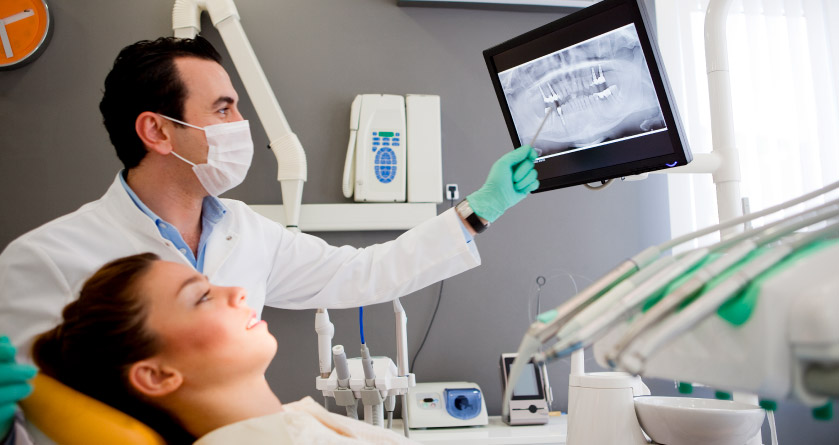
While getting a tooth extracted probably doesn’t top your list of ways you’d like to spend your time, sometimes extractions are necessary to preserve your oral health. Dr. Sitaram and Dr. Hostalet are incredibly experienced when it comes to performing tooth extraction. Our office even offers sedation services so you’ll be as comfortable as possible during the procedure. With all the advances in modern dentistry, tooth extraction has become a quick, commonplace way to treat infected teeth that can’t be saved. And thankfully, the tooth extraction process has evolved a lot over the centuries!
Medieval Dentistry
Tooth extraction has been around for centuries. In the Middle Ages, before the discovery of antibiotics, tooth extraction was used to treat a variety of illnesses. These extractions were often performed by a local barber – without an anesthetic. Yikes!
Development of Tools
A tool called a pelican (because it resembled the large-beaked bird) was developed in the 14th century, and used to extract teeth until the 18th century. The modern forceps became popular in the early 20th century. Until the early 1900s, traveling dentists performed extractions at town fairs, where musicians were instructed to play loud enough to cover the cries of pain of those unlucky folks who had their teeth extracted. Double yikes!
Modern Extractions
Today, tooth extraction is a common treatment for teeth we can’t save due to infection, decay, or trauma to your mouth. The procedure is usually very quick and only requires local anesthesia. After we remove your infected tooth, we’ll instruct you on proper care during the recovery process.
If Dr. Sitaram or Dr. Hostalet determine that you need a tooth extracted, we will work to ensure that you understand the need for the procedure and what will happen during the procedure. Our team will have you back to normal in no time!
As always, if you notice anything unusual about your teeth or are suffering from pain, call our office as quickly as possible. In many cases, if we identify the problem early, we may be able to completely avoid having to extract the tooth. To schedule your next appointment or to ask any questions, contact us now.
